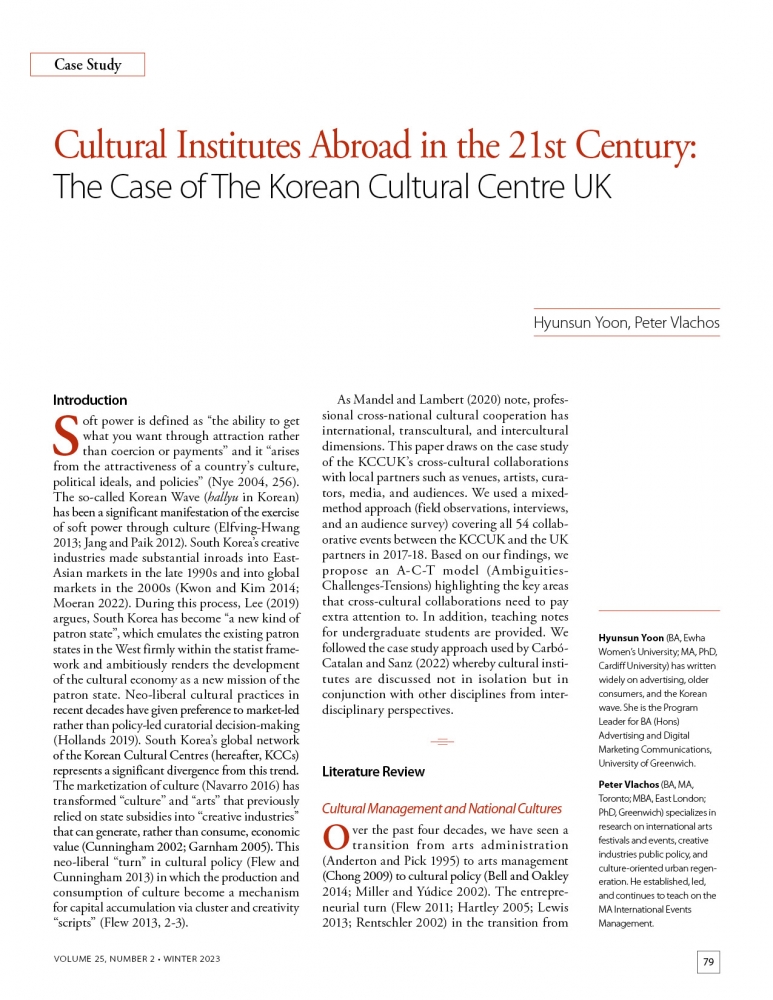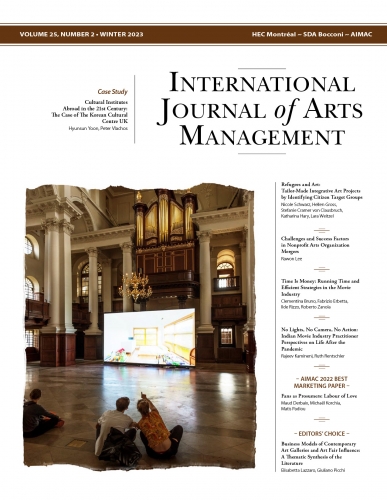Cultural Institutes Abroad in the 21st Century: The Case of The Korean Cultural Centre UK
Product: Article
$21.00 CA
Hyunsun Yoon, Peter Vlachos
Hyunsun Yoon (BA, Ewha Women’s University; MA, PhD, Cardiff University) has written widely on advertising, older consumers, and the Korean wave. She is the Program Leader for BA (Hons) Advertising and Digital Marketing Communications, University of Greenwich.
Peter Vlachos (BA, MA, Toronto; MBA, East London; PhD, Greenwich) specializes in research on international arts festivals and events, creative industries public policy, and culture-oriented urban regeneration. He established, led, and continues to teach on the MA International Events Management.
ABSTRACT
South Korea’s global network of politically arms-length Korean Cultural Centres (KCCs) represents an interesting divergence from the dominant neo-liberal cultural practices of recent decades which give preference to market-led rather than policy-led curatorial decision-making. Operating alongside the global commercial success of K-pop and the broader Korean Wave, KCCs play an active, hitherto under-investigated, role in the promotion of Korean culture abroad. The present paper draws on a case study of the Korean Cultural Centre UK (KCCUK) to explore the ways in which cultural institutes abroad in the 21st century engage in cross-cultural collaborations with local partners such as venues, artists, curators, media, and audiences. We used field observations, interviews, and an audience survey (total n=101) to analyze 54 collaborative events between the KCCUK and the UK partners over an eighteen-month season in 2017-18. Our findings show that “Ambiguities,” “Challenges,” and “Tensions” are recurring themes arising from cultural and managerial differences and future cross-cultural collaborations need to pay extra attention to these three areas. The teaching notes provide detailed instructions for designing a session for undergraduate-level students.
KEYWORDS
Cultural institute, cross-cultural collaboration, soft power, Korean culture, audience, diversity

